In the fast-paced world of tech, DevOps roles are like the superheroes of software development. They swoop in to save the day by bridging the gap between development and operations, ensuring smoother deployments and happier teams. Imagine a world where developers and IT professionals work together seamlessly—no more throwing code over the wall and hoping for the best!
Table of Contents
ToggleOverview of DevOps Roles
DevOps encompasses various roles that contribute to the development and operation lifecycle of software. Each role plays a critical part in fostering collaboration and efficiency.
DevOps Engineer simplifies and automates the processes that connect development and operations teams. This professional focuses on managing cloud infrastructure, implementing CI/CD pipelines, and ensuring seamless deployments.
Automation Architect designs and implements automation strategies that enhance workflow efficiency. It significantly reduces manual tasks, allowing teams to focus on higher-level challenges.
Site Reliability Engineer (SRE) maintains system reliability and performance while balancing the speed of delivery. SREs apply software engineering principles to operations by automating manual tasks and addressing performance issues.
Release Manager oversees the lifecycle of software releases. This individual coordinates multiple teams to ensure that product releases align with organizational goals and industry standards.
Quality Assurance (QA) Engineer emphasizes testing and quality throughout the development process. QA Engineers implement automated testing frameworks to facilitate early bug detection and ensure that software meets quality benchmarks.
Security Engineer focuses on integrating security practices into the DevOps lifecycle. This role is crucial for identifying vulnerabilities early on by applying DevSecOps principles, thereby ensuring a secure deployment.
Product Owner aligns the development team’s efforts with strategic goals. Prioritizing tasks based on user needs and business value drives product evolution effectively.
Understanding these roles illuminates the collaborative nature of DevOps. Each position is vital for creating an efficient and responsive development environment, ensuring that software delivery not only meets expectations but exceeds them.
Key Responsibilities of DevOps Roles
DevOps professionals play crucial roles in enhancing efficiency and collaboration within software development and operations. This section outlines a few key responsibilities that define these roles.
Collaboration and Communication
Effective collaboration drives the success of DevOps teams. DevOps professionals engage in regular communication with development and operations teams, ensuring that everyone stays aligned on project goals. Team members facilitate the sharing of knowledge and best practices among stakeholders. They host collaboration tools like Slack or Microsoft Teams to streamline information sharing. Frequent stand-up meetings foster transparency and address potential issues early. Building strong relationships accelerates project timelines, minimizes bottlenecks, and promotes a shared understanding of objectives.
Continuous Integration and Deployment
Continuous integration and deployment (CI/CD) are vital practices in DevOps. DevOps roles emphasize automating testing and deployment processes to enhance software delivery speed. They implement CI/CD pipelines that integrate code changes regularly, reducing integration issues. Moreover, automated testing ensures high-quality software before deployment. It’s crucial for teams to monitor application performance to identify and fix bugs swiftly. Using tools like Jenkins and GitLab simplifies the CI/CD processes while enhancing collaboration. Altogether, these practices contribute to a seamless and efficient software release lifecycle.
Essential Skills for DevOps Roles
DevOps professionals require a combination of technical and soft skills to excel in their roles.
Technical Skills
Proficiency in programming languages such as Python, Ruby, or Java supports automation processes. Familiarity with cloud platforms like AWS, Azure, or Google Cloud enhances infrastructure management capabilities. Knowledge of container technologies such as Docker and Kubernetes allows efficient application deployment and management. Understanding of CI/CD tools such as Jenkins or GitLab improves continuous integration and delivery workflows. Expertise in version control systems like Git supports collaboration across teams. Familiarity with monitoring and logging tools like Prometheus or Splunk aids in maintaining system reliability and performance.
Soft Skills
Effective communication boosts collaboration within teams and across departments. Problem-solving skills enable professionals to address challenges and optimize processes promptly. Flexibility allows adaptation to evolving project requirements and technologies. Strong collaboration fosters better teamwork, encouraging knowledge sharing and innovation. Conflict resolution skills help navigate disagreements and maintain a harmonious work environment. Time management promotes timely delivery of projects and efficient use of resources.
Different Types of DevOps Roles
Various roles exist within the DevOps domain, each contributing to the overall success of software development and operations.
DevOps Engineer
DevOps Engineers automate processes and streamline workflows. Their focus lies on managing cloud infrastructure and ensuring consistent deployment. Familiarity with scripting languages like Python and knowledge of CI/CD tools prove essential. They collaborate closely with development, testing, and operations teams to enhance software delivery speed. Furthermore, proficiency in monitoring tools allows them to maintain system performance and reliability. Overall, DevOps Engineers bridge gaps between multiple teams, ensuring cohesive project execution.
Site Reliability Engineer
Site Reliability Engineers prioritize system reliability while maintaining rapid delivery. These professionals apply software engineering principles to operations tasks, enhancing system performance and uptime. They address issues proactively, using monitoring tools to identify potential disruptions. On-call duties often form part of the role, helping them quickly resolve emergencies. By emphasizing automation, SREs reduce manual intervention, promoting efficiency. Importantly, they foster communication and collaboration between development and operations teams for a smoother workflow.
Release Manager
Release Managers oversee the entire software release lifecycle. Their responsibilities encompass planning, scheduling, and coordinating releases across various teams. Attention to detail proves crucial, as they ensure all components are ready for deployment. Effective communication skills facilitate alignment between developers, QA teams, and operations staff. Furthermore, they utilize project management tools to track progress and manage timelines. Release Managers play a pivotal role in minimizing risks and ensuring high-quality software delivery.
DevOps roles are essential in today’s fast-paced tech landscape. They bridge gaps between development and operations, driving efficiency and collaboration. Each position plays a unique part in enhancing software delivery while ensuring quality and reliability.
By embracing these roles and fostering a culture of teamwork, organizations can streamline their processes and achieve remarkable results. The blend of technical expertise and soft skills equips DevOps professionals to navigate challenges effectively. As the industry evolves, the demand for skilled DevOps practitioners will only grow, making their contributions invaluable for future success.


